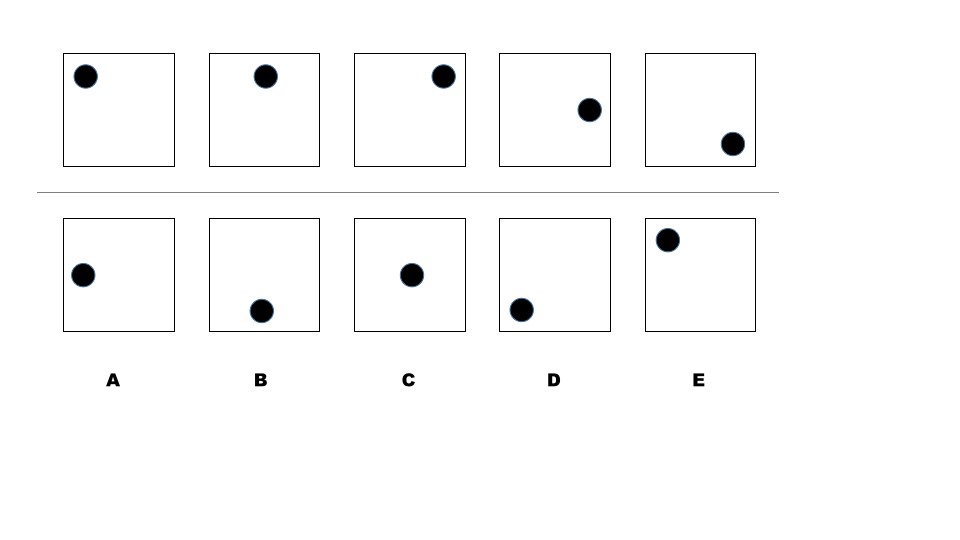TL;DR
- Inductive reasoning tests assess your ability to identify patterns and relationships in data through abstract reasoning.
- Employers favour these tests for evaluating problem-solving skills and intelligence, especially in IT and engineering sectors.
- These tests typically use diagrams and pictures, making them less reliant on education background.
- Preparation through practice tests and understanding test formats can greatly improve performance.
Inductive reasoning tests are a type of logical reasoning test, also known as abstract reasoning tests, which assess your critical thinking skills and how well you interpret relationships and discrepancies in data.
This type of reasoning requires you to follow the pattern from the available data and differs from deductive reasoning because there is no way to prove the correct answer.
Why Do Employers Like Them?
Employers like to use inductive reasoning tests to judge your intelligence and problem-solving skills.
They are used frequently in sectors such as IT and engineering as they ask you to work methodically to solve abstract problems under time pressure, which can be directly applied to the work you will do in these fields. However, lots of employers like to use them because they help give an idea of how you think and test skills that are difficult to ascertain in the usual hiring process.
Inductive reasoning questions are also mostly given in the format of diagrams or pictures, so they work in favour of more objective hiring.
Since they are less dependent on your education than verbal and numerical tests, they can help to support your application even if you do not have the traditionally expected background.
What To Expect in Inductive Reasoning?
Inductive reasoning questions can be tricky because the answers are not definitely true, they are just following the logic of the premises set before you. This requires a lot of confidence and a strong ability to be decisive and reasonable in the face of uncertainty, which is an extremely valuable skill to have in the workplace.
The questions are usually in the form of pictures or diagrams, rather than verbal or numerical, so test your ability to identify patterns in shapes. A typical question might look something like this:
Identify which box is next in the sequence
As you can see, attention to detail is key when it comes to inductive reasoning tests as you have to identify the correct solution amongst very similar options.
It may seem daunting, but your ability to spot discrepancies in data is something that is very easily improved through practice and determination.
How To Prepare for Inductive Reasoning?
Performing well on inductive reasoning tests helps to bolster your application and show your future employer skills that would otherwise be difficult to demonstrate in a traditional CV/interview format. Therefore, following our tips on how to prepare for inductive reasoning tests, such as doing as many of our free inductive reasoning practice tests as possible can really help you to get comfortable and confident with your skills.
You can also download our inductive reasoning test PDF, which means that you can test yourself offline and minimize distractions.
It can really help to find out who the test publisher is, so if possible ask ahead of time. Some of the most common types of inductive reasoning tests can be found here for more specific help:
- Cut-e discovering rules
- Kenexa logical reasoning
- Saville abstract reasoning
- Talent Q logical reasoning
You can also practice diagrammatic reasoning tests, which test both your inductive and deductive reasoning skills. Understanding the difference between the two and getting practice with as many types of questions as possible can really help make you feel confident and be able to tackle questions quickly and efficiently.
Don't forget to have a look through the Practice Aptitude Test's guide on how to ace inductive reasoning tests for some more insider tips to getting you fully prepared and ready to perform at your best.
FAQs - Frequently Asked Questions
What is an inductive reasoning test?
An inductive reasoning test measures your ability to spot patterns and relationships in data and draw logical conclusions. iSmartRecruit also values these tests as they reveal problem-solving skills essential in many jobs.
How can I best prepare for these tests?
Practice is key. Doing sample tests, like those on iSmartRecruit, helps you familiarise yourself with typical patterns and sharpen your speed and accuracy under time limits.
Why do employers use inductive reasoning tests?
Employers use these tests to assess your problem-solving skills objectively. They show how well you think critically and handle uncertainty, which are important workplace abilities.
Are these tests harder than other aptitude tests?
Inductive reasoning tests can seem challenging as they focus on abstract patterns. But with the right practice, anyone can improve. iSmartRecruit offers resources to help you gain confidence.
What types of jobs require inductive reasoning tests?
Jobs in IT, engineering, and similar fields often include these tests. They assess your ability to work methodically and solve problems, skills highly valued in technical and analytical roles.












.webp)


